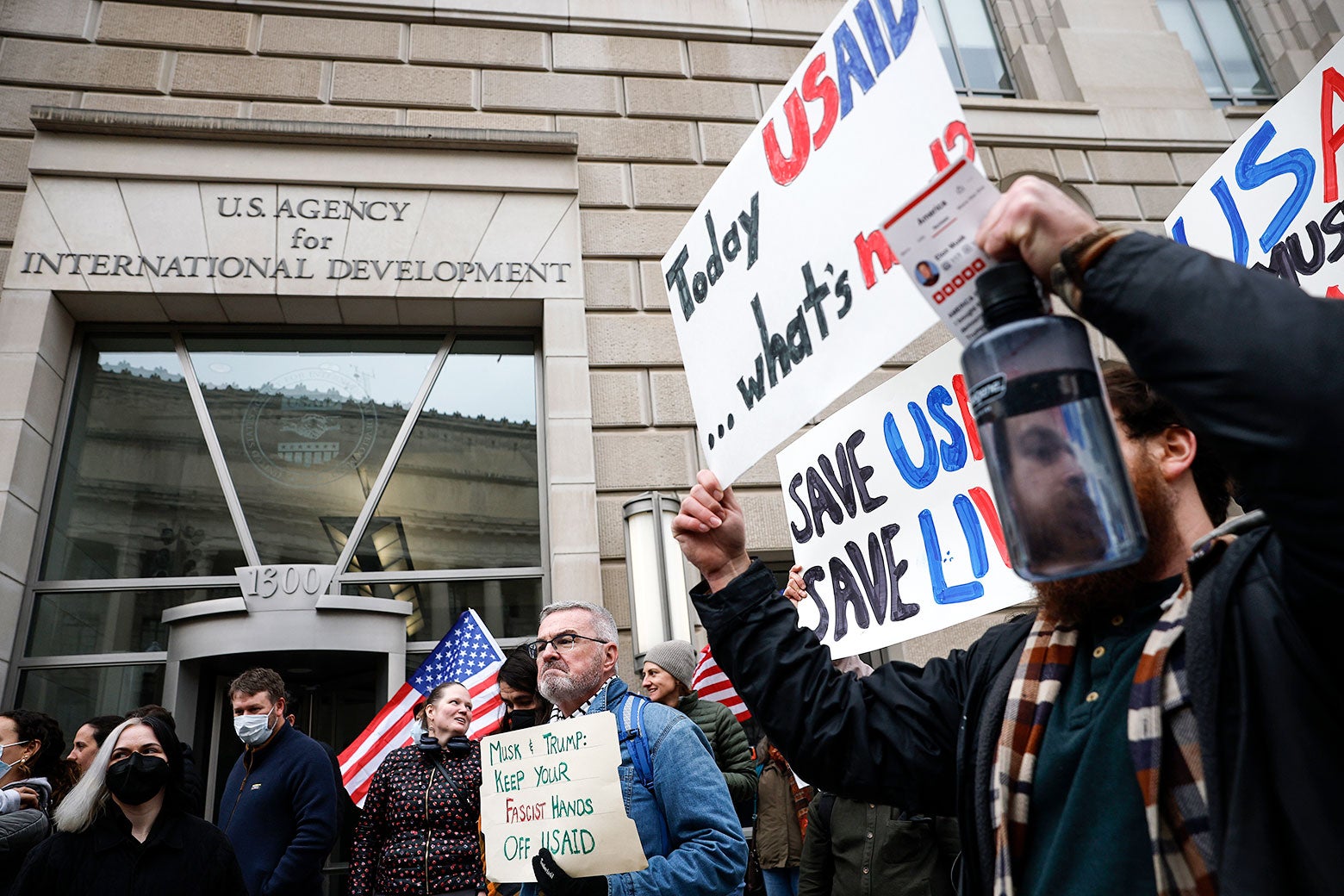The Implications of Trump’s Push to Restructure USAID
As former President Donald Trump continues to advocate for significant changes to the United States Agency for International Development (USAID), it’s crucial to explore the potential effects this push could have on global aid and international relations. Trump’s proposals, which aim to reshape America’s role in global development and diplomacy, raise critical questions about the future of international assistance and engagement.
Understanding USAID: A Brief Overview
USAID has played a vital role in promoting economic development, humanitarian aid, and democratic governance worldwide since its establishment in 1961. The agency’s mission is to advance global economic prosperity and help nations become self-sufficient. It operates in over 100 countries, providing assistance in various sectors, including health, education, agriculture, and infrastructure.
Over the years, USAID has been a cornerstone of U.S. foreign policy, reflecting the nation’s commitment to international development. With an annual budget exceeding $20 billion, the agency’s work is instrumental in addressing global challenges such as poverty, disease, and climate change. However, Trump’s push to restructure USAID seeks to re-evaluate its focus, funding, and operational modalities.
Trump’s Approach to USAID: Key Proposals
Trump’s proposals for restructuring USAID have raised eyebrows among policymakers and international development experts. Key elements of his approach include:
- Streamlining Operations: Trump advocates for reducing bureaucratic red tape within USAID to enhance efficiency and responsiveness. By simplifying processes, he believes the agency can deliver aid more effectively.
- Focusing on American Interests: A central theme of Trump’s vision is the emphasis on aligning foreign aid with U.S. national interests. This approach could lead to a more transactional model of aid, where assistance is contingent upon political or economic benefits for the U.S.
- Reducing Funding to Multilateral Organizations: Trump has expressed skepticism towards multilateral assistance programs, suggesting a shift towards bilateral aid where the U.S. has greater control over how funds are allocated and used.
- Promoting Private Sector Involvement: There is a push to increase private sector participation in international development. Trump believes leveraging private investment can lead to more sustainable outcomes.
Potential Implications for Global Aid
The implications of Trump’s push to restructure USAID could be far-reaching, affecting not only the agency itself but also the broader landscape of international aid. Here are several potential impacts:
1. Shift in Funding Priorities
If Trump’s proposals are implemented, we might see a significant shift in funding priorities. Traditional areas of focus, such as health and education, could receive less emphasis in favor of projects that directly serve U.S. interests. This could undermine long-term development goals in favor of short-term political gains.
2. Erosion of Multilateralism
By reducing funding to multilateral organizations, the U.S. risks alienating key partners in global development. Many international crises require a coordinated response, and a unilateral approach may hinder collaborative efforts essential for addressing complex global issues.
3. Impact on Global Perception
America’s global standing could be affected by these changes. Historically, the U.S. has been seen as a leader in humanitarian efforts. A shift towards a more self-interested model of aid may lead to a decline in soft power and influence, potentially emboldening rival nations seeking to expand their own global reach.
4. Increased Role of the Private Sector
While promoting private sector involvement could lead to innovation and efficiency, it also raises concerns about accountability and transparency. The motivations of private companies may not always align with the best interests of the communities they aim to serve, potentially leading to exploitative practices.
Reactions from the International Community
The international community has been largely critical of Trump’s approach. Development experts warn that prioritizing U.S. interests over humanitarian needs could lead to a fragmentation of global aid efforts. Countries that rely heavily on U.S. assistance for development may find themselves at a disadvantage if aid becomes conditional on political alignment.
Moreover, allies and partners may begin to seek alternative sources of funding, turning to other nations or international organizations that maintain a more traditional approach to development assistance. This shift could further isolate the U.S. in international forums and negotiations.
Future of USAID and Global Development
As the world faces unprecedented challenges, from climate change to economic inequality, the future of USAID and its role in global development is more critical than ever. While Trump’s proposals aim to revitalize the agency, they also carry the risk of undermining decades of progress in international aid.
Looking ahead, it’s essential for policymakers to consider the broader implications of restructuring USAID. A balanced approach that aligns U.S. interests with genuine humanitarian needs will be crucial to maintaining America’s reputation as a leader in global development.
Conclusion: A Call for Thoughtful Engagement
Trump’s push to restructure USAID represents a significant shift in how the U.S. engages with the world. As we contemplate the implications of these changes, it is vital to advocate for a thoughtful and strategic approach to foreign aid that prioritizes both national interests and global responsibilities. Ultimately, the effectiveness of U.S. international development efforts will depend on the ability to adapt to changing dynamics while remaining committed to the values of cooperation, compassion, and shared progress.
In this rapidly evolving global landscape, it is crucial to engage in discussions surrounding the future of USAID and its role in addressing the pressing challenges of our time. The implications of Trump’s proposals could redefine America’s contribution to global development, and it is up to all stakeholders to ensure that this contribution remains constructive, impactful, and aligned with the needs of the global community.
See more BBC Express News

